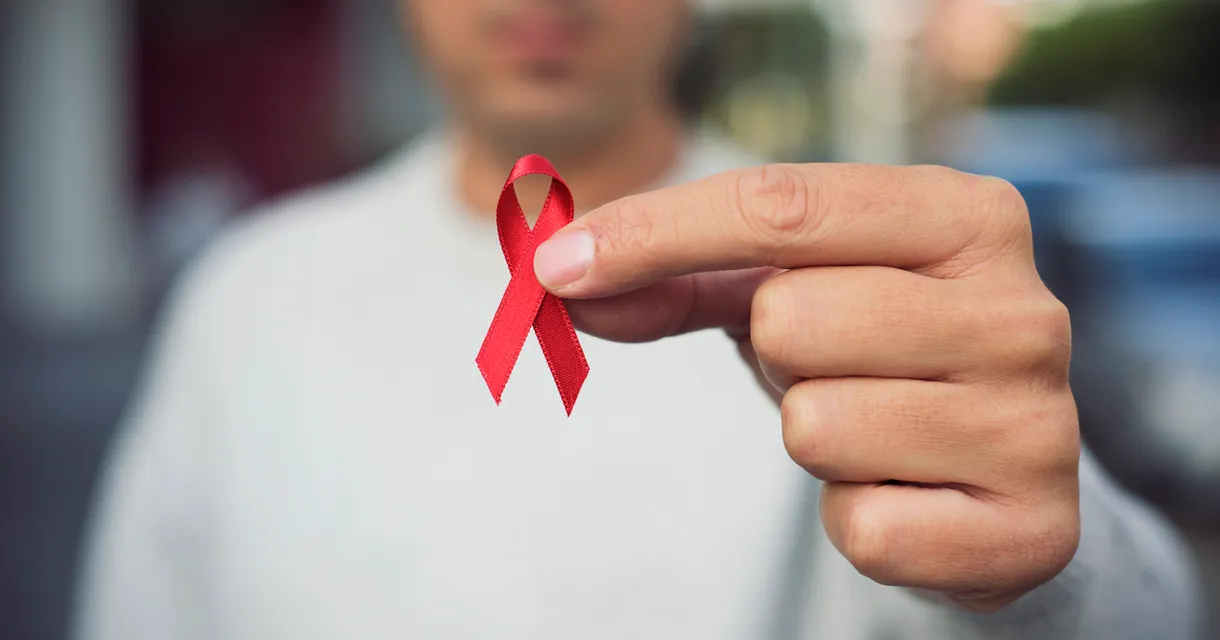What is AIDS?
AIDS stands for Acquired Immunodeficiency Syndrome. A person is considered to have AIDS when their immune system is severely damaged by HIV, making it unable to combat a range of diseases it would typically handle. These diseases, known as 'opportunistic diseases' and tumors, are caused by organisms that exploit a weakened immune system to cause illness.
AIDS results from untreated HIV infection over a long period. However, with timely diagnosis and effective medication, AIDS is no longer an inevitable outcome of HIV infection. Only a small proportion of people with HIV in the UK are now diagnosed with AIDS.
Are HIV and AIDS the same thing?
HIV and AIDS are not the same thing. HIV is a virus. AIDS is a clinical description of one or more diseases which can affect someone who has had their immune system seriously compromised by HIV. People with HIV can successfully avoid getting AIDS by being diagnosed in time and taking HIV treatment.
How do you know if you have AIDS?
While there is no test specifically for AIDS, you can take a test to determine if you are HIV positive.
Doctors have established a list of opportunistic diseases that are considered 'AIDS-defining.' This means that if someone with HIV contracts one or more of these diseases, they are diagnosed with AIDS.
Examples of AIDS-defining illnesses include:
Cryptococcus outside the lungs: This fungus primarily affects the brain, with symptoms such as headaches, nausea, fever, fatigue, altered mental status, and irritability. It can also cause seizures, coughing, sweats, and difficulty breathing.
Cryptosporidiosis with diarrhea lasting more than one month: This parasite can cause diarrhea, with symptoms including chronic diarrhea with frequent watery stools, stomach cramps, nausea, fatigue, weight loss, appetite loss, vomiting, dehydration, and electrolyte imbalance (especially sodium and potassium).
Cytomegalovirus (CMV) disease outside the liver, spleen, or lymph nodes: This virus can affect many parts of the body. Symptoms might include CMV-related retinitis (in the eye, retina), which leads to blurry vision or loss of central vision and can result in blindness; colitis (in the colon), which causes fevers, diarrhea, and stomach pain; esophagitis (in the throat), which leads to ulcerations, pain, and difficulty swallowing; pneumonitis (in the lungs), which resembles pneumonia symptoms; and encephalitis (in the brain), which results in confusion, fever, and tiredness.
Pneumocystis pneumonia (PCP): This parasite infects the lungs, causing symptoms such as fever, cough, and difficulty breathing. It may also cause weight loss, night sweats, and fatigue.
How do you avoid getting AIDS?
AIDS is caused by HIV infection, making the prevention of HIV transmission crucial. You can prevent HIV by using condoms during penetrative sex and clean injecting equipment if you use drugs intravenously.
Even if you are infected with HIV, you can avoid developing AIDS if diagnosed early enough to benefit from the highly effective drug treatments available today. If you believe you may have been exposed to HIV, it is important to consider getting tested.
You can live with HIV for many years without showing any signs of AIDS-related illnesses, so do not wait until you feel unwell to get tested for HIV.
How do you become infected with HIV?
HIV can be passed on through infected blood, semen, vaginal fluids or breast milk. The most common ways HIV is passed on in the UK are:
-
Sex without a condom with someone already infected with HIV
-
Sharing infected needles syringes or other injecting equipment
-
From an HIV positive mother to her child during pregnancy, childbirth or breastfeeding. However, there are steps mothers can take to reduce very significantly the possibility of their unborn or weaning child contracting HIV.
Oral sex carries a much lower risk than penetrative sex, but HIV can still be passed on through cuts, gum problems or ulcers in the mouth if they come into contact with infected body fluids. HIV cannot be passed on through:
-
Kissing or touching
-
Spitting
-
Coughing or sneezing
-
Toilet seats
-
Swimming pools or
-
Shared facilities or utensils.
-
How can a person reduce the risk of getting HIV?
Engaging in sexual activity without a condom or sharing needles significantly increases the risk of contracting HIV. These actions allow the virus to enter the bloodstream and cause infection.
Several effective strategies can prevent or greatly reduce the risk of HIV infection, including:
-
using a condom during sexual intercourse to act as a barrier against the virus
-
post-exposure prophylaxis (PEP), which involves taking antiretroviral medicines after potential exposure to HIV to prevent infection
-
pre-exposure prophylaxis (PrEP), a medication taken by HIV-negative individuals before exposure to reduce the risk of infection
-
undergoing HIV treatment to lower the viral load to undetectable levels, significantly reducing the risk of transmission
-
if you use drugs, never share needles or injecting equipment like syringes, spoons, and swabs to prevent the spread of HIV through blood
For personalized advice on reducing your risk of HIV infection, consult your local sexual health clinic or a general practitioner (GP).
For those living with HIV, consistently taking effective treatment and maintaining an undetectable viral load for at least 6 months means you cannot transmit the virus through sexual contact.
This is known as undetectable=untransmittable (U=U), emphasizing the importance of adhering to treatment to prevent transmission.




